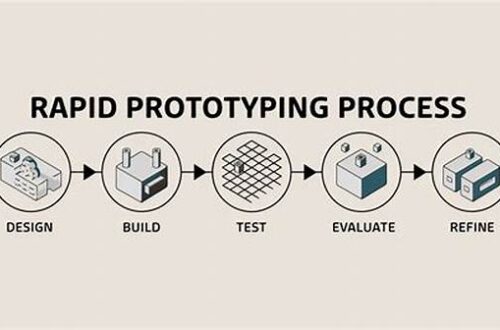Hey there, fellow adventurers and game developers! Welcome to a journey full of creativity and challenge as we dive into the mystical world of scripting dynamic quest events. If you’ve ever played a game and thought, “Wow, how did they create such engaging quests?”, then buckle up, because we’re about to uncover the magic behind it all. So, grab your caffeinated beverage of choice, get comfy, and let’s get started!
Read Now : Real-time Physics Simulation Performance
The Art of Creating Immersive Quests
Creating quests that keep players on their toes involves more than just a good storyline. It’s about crafting an experience that feels alive and responsive to player actions. This where scripting dynamic quest events comes into play. Imagine a player picking up a clue from a tavern brawl, only for the world to change based on their findings. Dynamic quests allow for a storytelling experience that’s as close to real-time as you can get—where actions have consequences, and players truly feel like they’re part of the adventure.
Picture this: A player decides to save a village from impending doom, but because you’ve been clever with scripting dynamic quest events, the threats evolve, making each playthrough unique. Suddenly, the village isn’t just a static backdrop but a living, breathing world reacting to the player’s every move. With this kind of scripting, you ensure that players remain engaged, curious, and always coming back for more!
Techniques for Scripting Dynamic Quest Events
Event Triggers
At the heart of scripting dynamic quest events are triggers — these are the actions or conditions that propel a quest forward. Think picking up an object or defeating a foe.
Branching Paths
Give players choices! Dynamic quests often involve branching paths that open or close based on player decisions, ensuring each playthrough can be different.
Randomization
Add a sprinkle of chance by randomizing certain elements. Maybe the enemy knows different spells each fight, or treasures appear in different spots.
Time-Based Challenges
Adding time constraints can ramp up the excitement. Perhaps a quest is only available at night, or a rescue mission must be completed before dawn.
NPC Reactions
Have NPCs react dynamically. If a player chooses a path that affects the village, residents should respond accordingly — praising or critiquing the player’s decisions.
Crafting the World with Scripting Dynamic Quest Events
World-building is perhaps the most exciting part of game development. When scripting dynamic quest events, consider the world as a tapestry of interconnected stories and possibilities. Each quest you create can be a thread that enhances and enriches the entire gaming landscape. Dynamic quest events are not just side quests; they’re integral components of your world that add depth and dimension.
Embedding dynamic elements in your quests not only boosts replayability but also immerses players deeper into the storyline. The beauty of scripting dynamic quest events lies in their ability to make players feel like they’re crafting their narrative. Every decision nudges the plot forward, and every mistake or victory changes the game’s landscape, offering rewards and challenges tailored to their unique journey.
Read Now : Visual Programming For Game Developers
Building Player Engagement through Scripting Dynamic Quest Events
Engaging players is the holy grail of game design, and nothing captures a gamer’s heart like a quest that feels personal and responsive. Scripting dynamic quest events plays a critical role in ensuring players stay hooked. It keeps players guessing, incentivizing them to explore every nook and cranny of the world you’ve built. Creating that sense of wonder and discovery is what scripts will allow you to achieve.
Combine elements like plot twists, unexpected allies becoming foes, and vice versa. With dynamic scripts, NPCs can become more than just mere fixtures; they become allies, mentors, and sometimes antagonists who shape the player’s storyline. Another benefit is the organic discussion it can stimulate among the community, as players share their unique experiences, adding a layer of community engagement to the game.
The Challenges and Triumphs of Scripting Dynamic Quest Events
Developing a game is never a linear path, and scripting dynamic quest events presents its own set of challenges and rewards. First-time developers might find the scripting process daunting. There’s coding, testing, and then more coding that goes into making sure everything runs seamlessly. But watching players engage, discover the various layers of your quests, and respond to their environment is an unmatched triumph.
Remember, every small improvement in your scripts can lead to a measurable enhancement in player experience. As developers, we must be constantly learning and evolving. Embrace feedback, as it’s a golden opportunity to refine the intricacies of your dynamic quests. Persistence and creativity are the keys!
Concluding Thoughts on Scripting Dynamic Quest Events
To sum it up, scripting dynamic quest events is like being the invisible hand that shapes a player’s journey, providing them with an experience that is both immersive and memorable. It’s a delicate balance of creativity, technical expertise, and storytelling. Done right, these dynamic events can elevate a game from good to unforgettable, transforming players from mere participants into true heroes of their story.
Incorporating these scripted events means inviting players into an ever-evolving world that mirrors the unpredictability and excitement of real life. So, whether you’re a seasoned developer or an enthusiastic newbie, remember that the heart of a captivating quest lies in its ability to adapt, surprise, and resonate with its players. Here’s to crafting epic adventures one dynamic quest event at a time!





